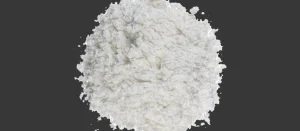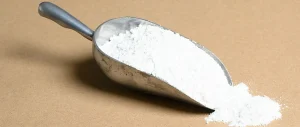Introduction of Magnesium Carbonate
Chemical Properties and Basic Information about Magnesium Carbonate
Magnesium carbonate (CAS 546-93-0) is an inorganic salt characterized by its white appearance. This compound forms a variety of hydrates and basic carbonates and is known for being poorly soluble in water. When exposed to acids, magnesium carbonate reacts by releasing carbon dioxide, a reaction that highlights its basic chemical nature. It is stable under normal conditions but decomposes into magnesium oxide (MgO) and carbon dioxide (CO₂) upon heating.

Common Forms and Chemical Formula
The chemical formula for pure magnesium carbonate is MgCO₃. It naturally occurs in several hydrated and basic forms, with magnesite being the most common mineral form. Industrially, magnesium carbonate is available in two primary forms: ‘light’ and ‘heavy.’ Light magnesium carbonate is a fluffy white powder and contains more air and moisture, whereas heavy magnesium carbonate is denser and contains less moisture.
Traditional Uses of Magnesium Carbonate
In medicine, it has served as an antacid to relieve symptoms of indigestion and heartburn. Historically, it has also been employed in the production of ceramics and glass, where it acts as a stabilizer and improves the durability of the finished products.
Additionally, magnesium carbonate has been used in personal care products like talcum powder for its moisture-absorbing properties, providing comfort and preventing rashes.
Production and Extraction of Magnesium Carbonate

Natural Sources of Magnesium Carbonate
Magnesium carbonate is primarily sourced from magnesite, a naturally occurring mineral. This mineral is predominantly mined in regions such as Russia, China, and Turkey, where large deposits are found.
Industrial Methods and Technologies for Producing Magnesium Carbonate
One common technique involves the processing of magnesite ore, which is heated to release carbon dioxide, resulting in magnesium oxide. This oxide is then combined with carbon dioxide under high pressure and temperature to reform magnesium carbonate.
Another method involves the extraction of magnesium from seawater or brine, where it is precipitated as magnesium carbonate by adding sodium carbonate.
Physical and Chemical Properties of Magnesium Carbonate
Physical Characteristics of Magnesium Carbonate
Magnesium carbonate is typically a white, odorless powder that exhibits low solubility in water, enhancing its stability and making it useful in various applications. It varies in density and particle size, depending on whether it is light or heavy form.
Important Chemical Reactions and Behavior
Chemically, magnesium carbonate reacts with acids to produce magnesium salts, water, and carbon dioxide, demonstrating its basic properties. It also decomposes into magnesium oxide and carbon dioxide when heated at high temperatures.
Applications of Magnesium Carbonate
Medical and Dietary Uses
Magnesium carbonate is widely used in the medical industry as an antacid to relieve symptoms like indigestion and heartburn. It also functions as a laxative to alleviate constipation. Beyond these applications, it is included in dietary supplements for its essential magnesium content, contributing to bone health and enzymatic reactions within the body.
Sports Applications
In the realm of athletics, magnesium carbonate is invaluable as a drying agent. It is extensively used in gymnastics, weightlifting, and rock climbing to absorb sweat and improve athletes’ grip. This not only enhances performance but also increases safety during competitions and training sessions.
Manufacturing and Industrial Uses
In manufacturing, magnesium carbonate helps in producing ceramics and glass by acting as a stabilizer and increasing resistance to thermal and mechanical stress. It is also utilized as a fire retardant; upon heating, it releases carbon dioxide which helps suppress flames effectively.
Food Industry and Personal Care Products
Magnesium carbonate serves as an anti-caking agent in the food industry, ensuring that powdered products remain free-flowing. It is also an ingredient in personal care products such as toothpaste and cosmetics, where it provides mild abrasive qualities and helps stabilize formulas.
Environmental Applications
The environmental sector benefits from magnesium carbonate in water treatment processes, where it aids in the removal of impurities. Additionally, it is employed in carbon capture technologies to reduce atmospheric carbon dioxide, showcasing its role in combating environmental pollution.
Health and Safety Considerations
Health Benefits and Potential Side Effects of Magnesium Carbonate
Magnesium carbonate offers health benefits such as improved digestion and bone health support. However, excessive use can lead to side effects like stomach upset and diarrhea.
Guidelines for Safe Handling and Storage
Magnesium carbonate should be handled with care to avoid inhalation and contact with the eyes. It should be stored in a cool, dry place away from acids and moisture to maintain its stability and effectiveness.
Environmental Impact
Environmental Effects of Magnesium Carbonate Mining
Mining magnesium carbonate can lead to landscape disruption and habitat loss. It also raises concerns about water pollution from runoff.
Behavior and Ecological Role of Magnesium Carbonate in the Environment
In the environment, magnesium carbonate helps neutralize acidic soils, improving soil health and plant growth. It also participates in carbon sequestration processes, aiding in climate change mitigation.
Choose A Trusted Partner for Your Business

NIRAN BioChemical is a professional magnesium carbonate supplier and manufacturer in China, dedicated to providing high-quality products. We offer superior pre-sales and after-sales services and comprehensive wholesale solutions for magnesium carbonate. Our commitment to excellence ensures that our clients receive the best products and support throughout their purchasing journey, making us a trusted partner in the industry.
Conclusion
Magnesium carbonate holds significant importance due to its versatile applications in medical, industrial, and environmental fields. The magnesium carbonate benefits are many more than other chemical products. You are in the right place if you are looking for magnesium carbonate products. If you have any questions, you can feel free to contact us.
